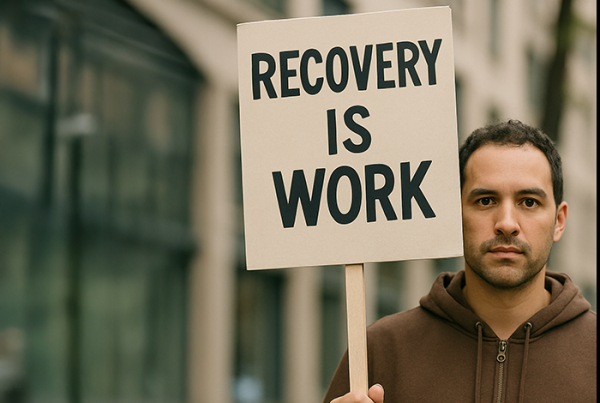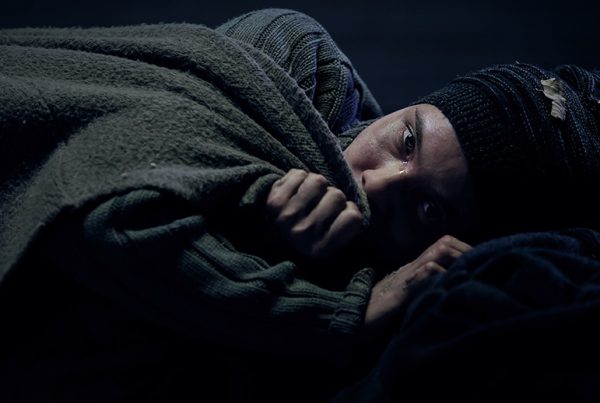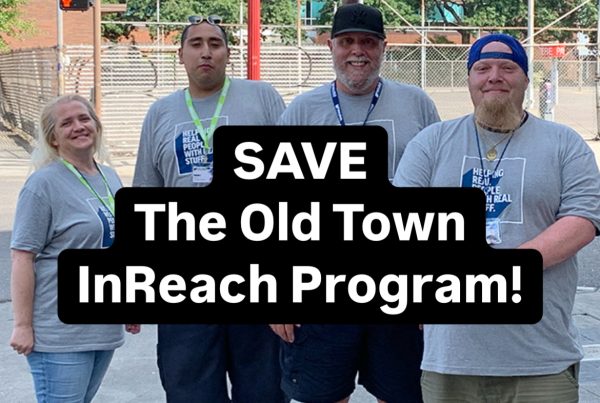A diverse array of health services pop up in Blanchet House’s parking lot weekly to serve unhoused people in Old Town Portland.
By Emily Coleman, Blanchet House Programs Director
Almost daily, there are stories in the news regarding the mental health and addiction crises hurting people experiencing homelessness in Portland. There is no denying that both issues are significant challenges within this community. In the 2022 Point-In-Time Count (PIT) survey conducted among people experiencing homelessness, 37.9% of respondents self-identified as having a mental health disorder, and 37.1% identified as having a substance use disorder.
We tend to hear less about the physical health challenges faced by the homeless community, though these are far more prevalent among the unhoused. The PIT report shows that 25.6% of respondents have a physical disability, and 23% have a chronic health condition. Medical issues like these can be incredibly difficult to manage while living on the streets.
According to a 2019 National Health Care for Homeless Fact Sheet, people experiencing homelessness are twice as likely to have diabetes, hypertension, or experience heart attack, and die on average 12 years sooner compared to the average US citizen.
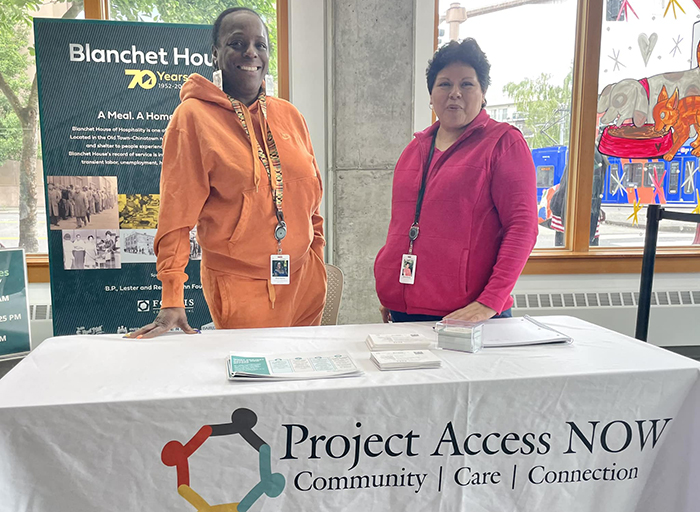
Staff with Project Access Now visit Blanchet House regularly to connect people experiencing homelessness with state-provided health insurance.
In Blanchet House’s Cafe, we observe many people living with physical disabilities, with visible infections or wounds, and with chronic conditions they struggle to manage. To help ensure that our guests can get their healthcare needs met, we’ve increased partnerships with organizations that can bring their services to us. Many of our guests experiencing homelessness lack access to a phone and computer, so it’s critical to their health that they be able to access care in a low-barrier way.
This spring, we started hosting teams from Project Access Now and Care Oregon during our lunch services. Both organizations help people sign up for the Oregon Health Plan (OHP) and connect to providers. Our guests can speak in person to their staff to understand the programs, make an appointment to complete the OHP application and ask questions to better understand their benefits and how to access services.
We also welcome mobile medical services that can address more urgent and immediate needs. The Multnomah County Department of Health sends an Outreach Testing Van to our parking lot bi-weekly to offer HIV and STD testing free of charge. Doctors and nurses with Portland Street Medicine bring their vans and set up to offer wound care and medical support. Central City Concern’s mobile health services team has also become a regular sight in the parking lot, offering primary care, mental health support, and much more.
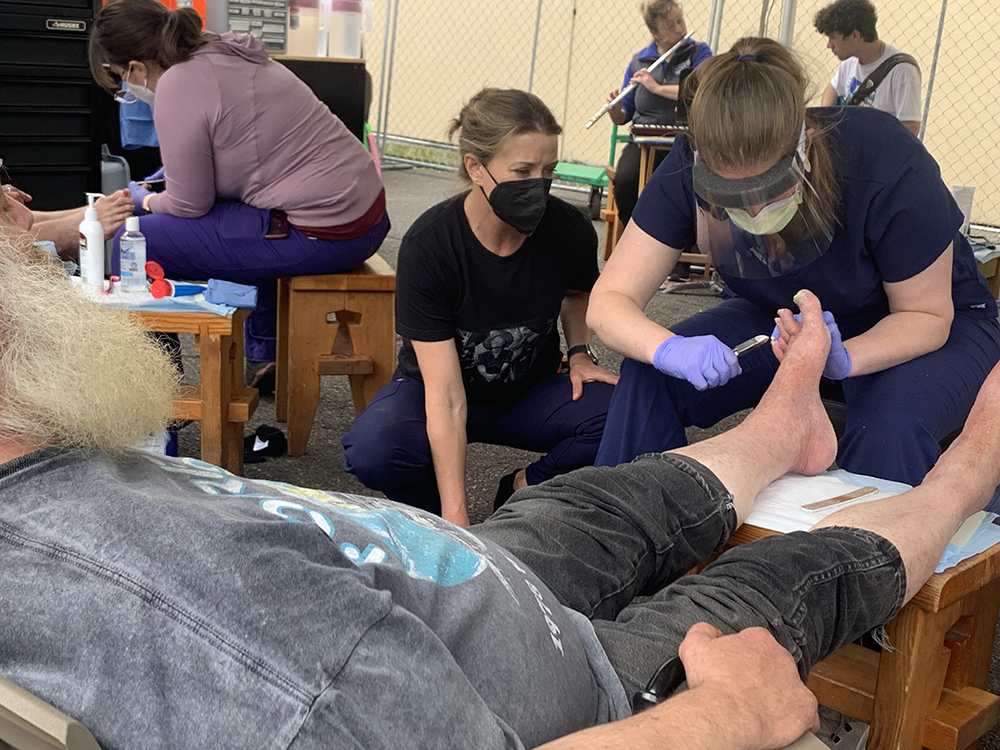
Volunteer nurses tend to the feet of a man experiencing homelessness at a pop-up food care health clinic in Blanchet House’s parking lot.
Blanchet House also houses the Harrington Health Clinic (HHC), a nurse-led clinic that not only provides medical care for residents staying in our transitional housing program but also hosts pop-up foot care clinics in the parking lot for guests of our café. Poor foot health is common among people experiencing homelessness, given limited access to hygiene services, frequently wet feet, walking long distances to access services and injuries due to accidents or assaults. The HHC foot care clinics offer guests the chance to have their feet washed, treated, and massaged, and leave with a pair of fresh socks and shoes.
The people we serve have so many needs, and while we do what we can by providing food, hygiene items, and clothing, we know we can’t be everything to everyone. We’re lucky to be a part of an incredible community of collaborative organizations that come together to meet the needs of our most vulnerable.
For more information about collaborating with Blanchet House please email us at info@blanchethouse.org.














